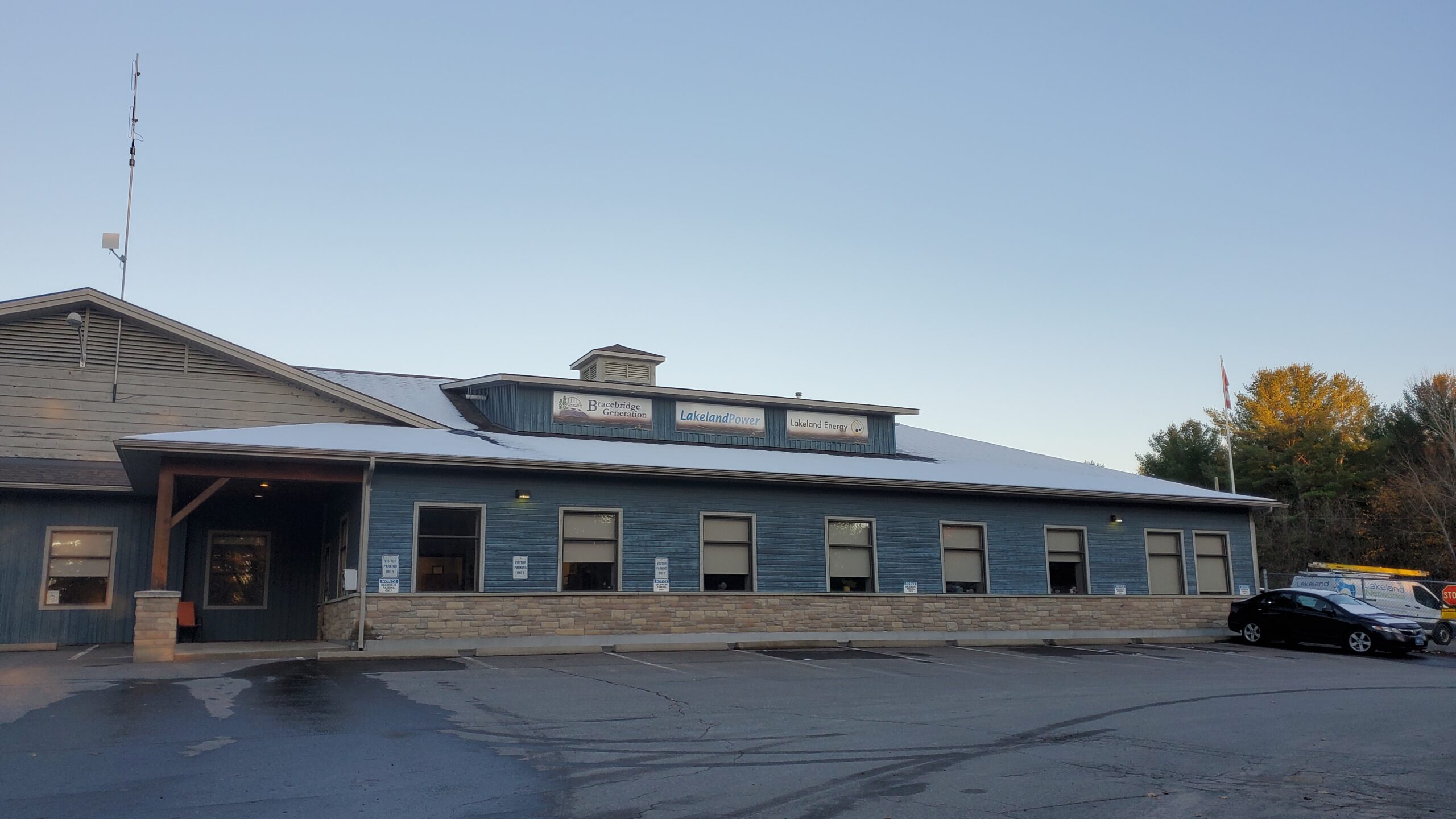An innovative power system successfully tested in Parry Sound could be the first of its kind.
Bracebridge Generation’s (BG) Project SPEEDIER consists of 165 homes in their own “microgrid,” which is connected to a solar panel array and battery bank, as well as the main power grid. That means they can be “islanded” off the main grid, operating normally while separated from the rest of the area.
The company recently ran a four-day test of the system, but Chris Litschko, CEO of BG and its parent company Lakeland Holding, says an unplanned outage beat them to it.
“The microgrid worked seamlessly. It kept about 165 customers on during that outage, and seamlessly disconnected,” says Litschko. “The customers never knew that there was an outage at all. So it’s the first of its kind to be a seamless, integrated microgrid, possibly in the world, but for sure in North America.”
Normally, homes on a microgrid could expect a few seconds to a few minutes of downtime as switches rerouted around an outage. Thanks to advanced software from BG’s partner on the project, Opus One Solutions, Litschko says the switch happened in milliseconds.
In an extended outage, Litschko says the solar power and batteries would be able to keep the 165 homes fully powered for up to six hours.
As the system is integrated into the municipal power infrastructure, it would be up to municipalities, rather than homeowners, to fund and implement. Litschko says they’ve had plenty of interest in other places, including the municipalities that own Lakeland: Parry Sound, Bracebridge, Huntsville, Burk’s Falls, Sundridge and Magnetawan.
The biggest hurdle to expansion, he says, is current provincial regulations around net metering. Net metering allows buildings to generate their own electricity through renewable sources, and feed the excess into the electrical grid in exchange for credit to your electricity bill.
According to Litschko, current net metering regulations do not allow for electricity generated in one place to be used to offset another, meaning much more infrastructure would be required.
“If you look at our solar field that’s out at the waste treatment plant, and the battery. Let’s say Parry Sound said ‘you know what, the electricity you’re generating, can you offset our arena’s electricity’,” says Litschko. “Right now you can’t. It’s pretty simple to do, but the regulations in Ontario don’t allow that.”
Litschko says the company has been in contact with the provincial government, with regulatory changes in the works. He says he is concerned that June’s provincial election might delay government action on the matter, but adds they’re pushing as hard as they can.
“This innovation type could really take off. It could save the consumers. It’s green power, and it would save huge construction costs for distribution companies [by] not having to construct bigger pole lines, more transformers and everything,” says Litschko. “So it’s very important that the government approves net metering so these types of projects can be taken to the next step and rolled out, for the benefit of everyone.”
Litschko adds the project is also waiting to hear back on their standing in the Power Forward Challenge, a joint competition from Natural Resources Canada and the UK’s Department for Business, Energy, and Industrial Strategy. BG is one of seven finalists in the challenge, with the top prize of $1-million to be announced this spring.



